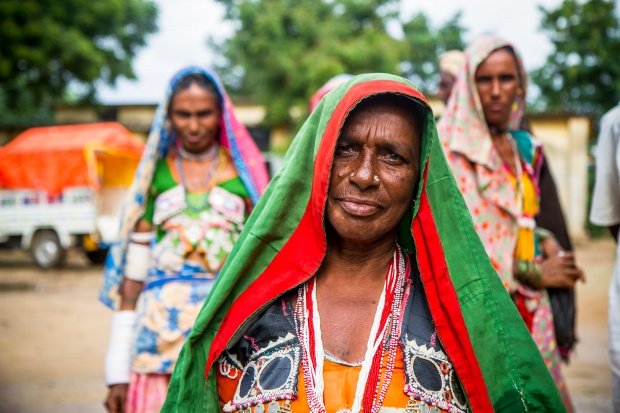Gender research supports more equitable outcomes during and post-crisis, while helping to build more resilient systems.
While scientists and climate activists have sounded the alarm for decades, calling attention to the impending impacts of climate change, it has proven to be exceptionally difficult to shift behavior, at every level, to a more sustainable approach. The global shock felt around COVID-19, however, may be a glimpse into our future, one where system shocks are substantial and felt globally.
The ongoing pandemic has wreaked havoc on institutions, systems, communities, and individuals while, at the same time, laying bare structural inequalities, including gender disparities.

Common gender norms mean that women are on the frontline of collecting water, fuel, fodder and provide care work, both in the home and through formal employment, where, globally, 70 percent of healthcare workers are women. Additionally, the sectors that women often rely on for income and food security are stressed by border closures, restricted transportation, and social distancing guidelines.
Women are also instrumental in the fight against shocks, including the facilitation of better COVID-19 adaptation strategies. In India, women’s self-help groups are helping to feed people, provide health information, and create face masks. Initiatives in Senegal and the Democratic Republic of Congo place women at the center of efforts to combat the disease. At the national level, initial research suggests that women leaders have managed the pandemic better, recording fewer infections and a lower death rate.
This dichotomy, one where women are essential for combatting system shocks while simultaneously underrepresented in decision-making spaces, illustrates why gender research, especially research that aims to understand women’s roles as active agents of change, is essential.
Related Articles: Women In Agriculture Initiative | Equality in a Post-Pandemic Era | The Gender Dimension of Climate Change
The International Day of Rural Women (IDRW) is an opportunity to celebrate the importance of women for the future of rural communities, while also examining how gender research, like that undertaken by CCAFS, plays an instrumental role in supporting them.
For example, climate-smart agriculture (CSA) has the potential to reduce agriculture’s gender gap. To do this, however, women must be included in the design of CSA interventions, with special attention for how CSA technologies can reduce or add to the agriculture workloads that women face. For example, research on dairy intensification from Kenya points to the complicated role gender plays in household decisions about feeding livestock concentrate or whether milk is sold in formal or informal markets.
The Scaling-Out Climate-Smart Village Program in the Vulnerable Areas of Indo-Gangetic Plains of India includes a gender integration for inclusive adaptation to climate risks component. Implemented in the Indian states of Bihar, Madhya Pradesh, and Uttar Pradesh, it promotes technologies that reduce women’s agriculture-related labor while helping women develop their leadership and entrepreneurial skills.
Farmers can also benefit from climate information services, which allows them to plan and prepare for changing weather. Once again, access to technology and gender norms play a role in how climate information is accessed, what type of information is needed, and how it is used.
For example, when COVID-19 prevented farmers in Somotillo, Nicaragua from holding in-person meetings, they turned to online tools. By connecting with women’s groups and considering women’s climate information needs, researchers can help create services that benefit both men and women.
At the policy level, gender mainstreaming allows for governments to effectively, and inclusively, combat climate change. However, developing and implementing these policies requires gender analysis, the creation of gender tools, data collection, analysis, the development of gender indicators, and gender budgeting as research from Uganda and Tanzania illustrates.
These examples are just a few avenues through which gender research influences the uptake of technology, policy, and information access. System shocks are inevitable and their frequency and severity are likely to increase due to climate change. Given this reality, men’s and women’s needs and perspectives must be considered in research activities so that climate solutions are inclusive, equitable, and effective.
Editor’s Note: The opinions expressed here by Impakter.com contributors are their own, not those of Impakter.com. — Featured Photo Credit: F. Fiondella (IRI/CCAFS)











